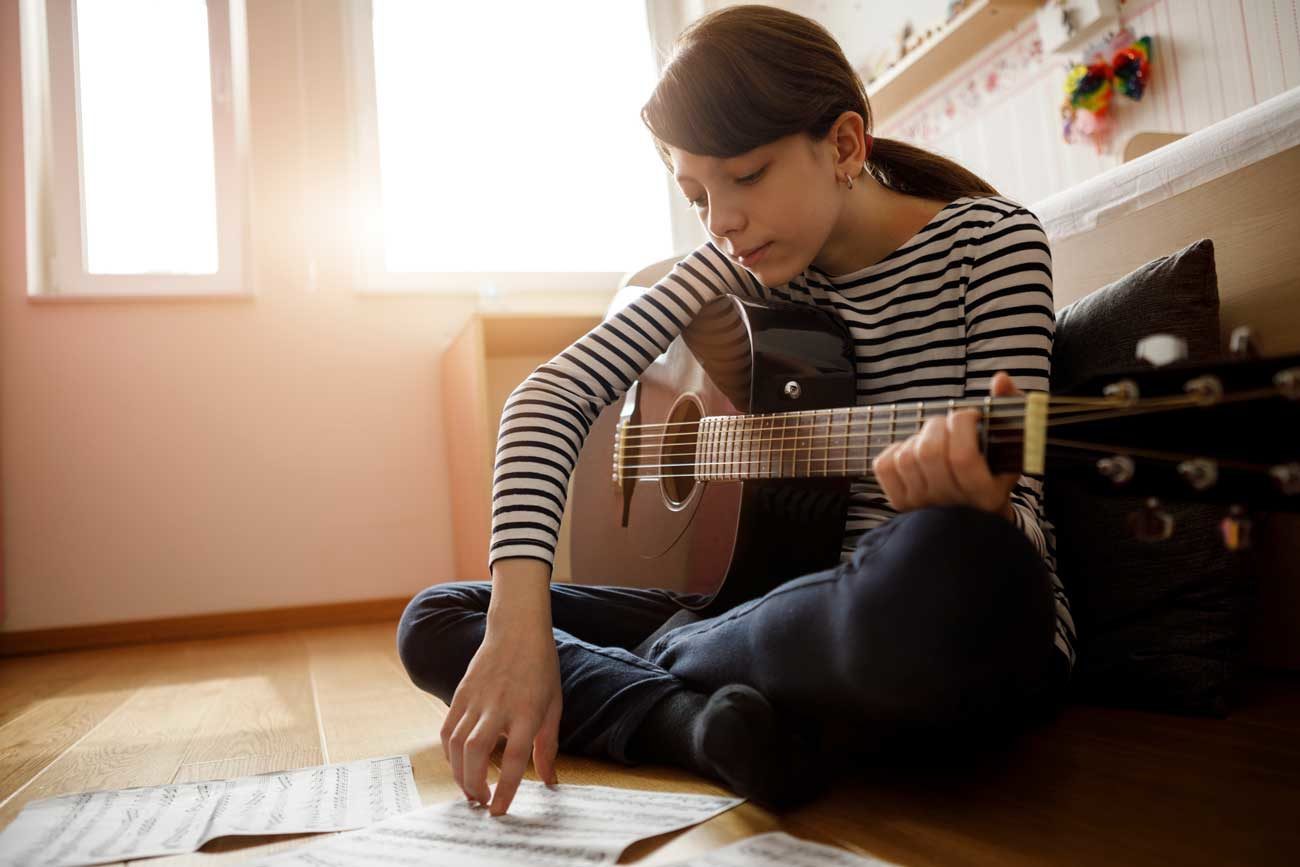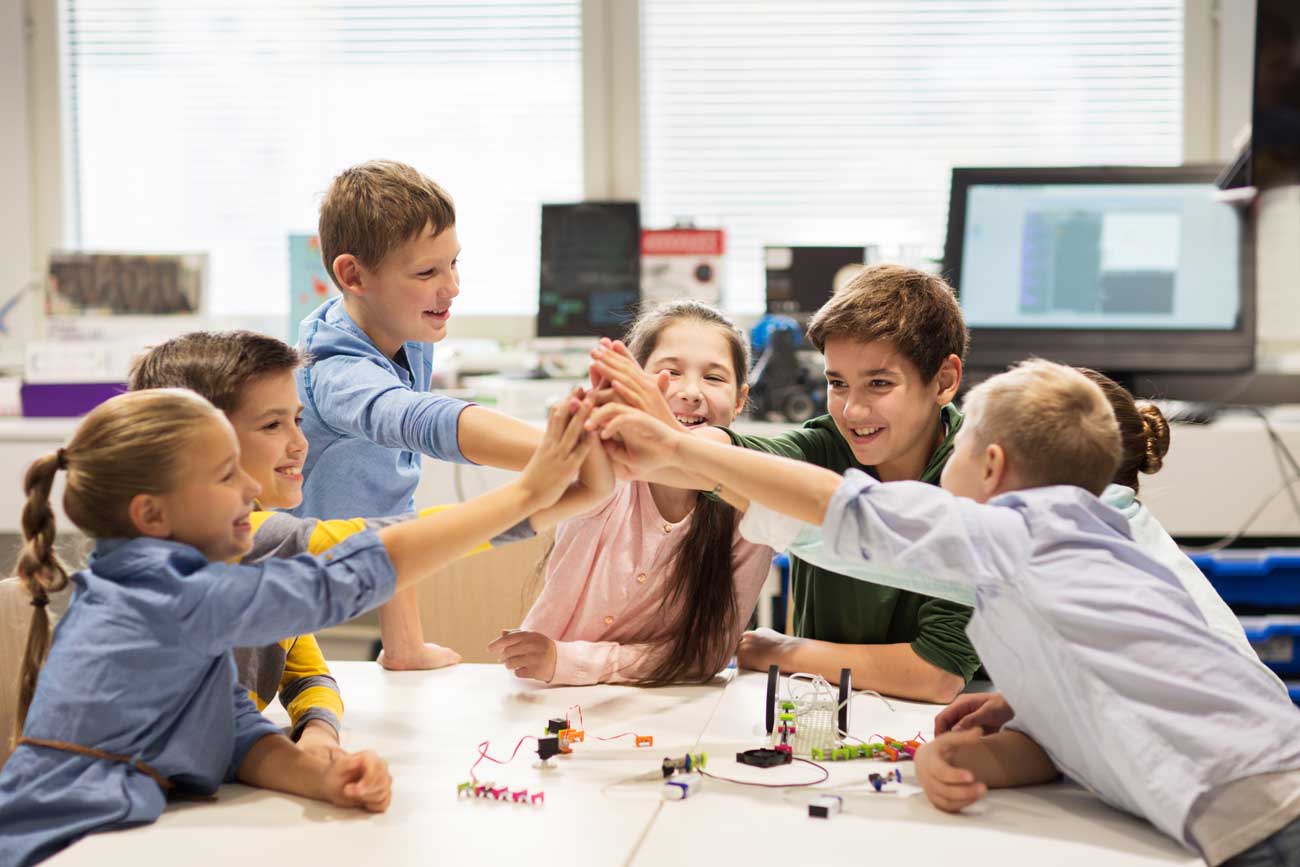
At this time of year, class lists can be a hot topic and many parents might be doing everything they can to enable their child to be in a class with a specific friend or teacher in the next school year. But, writes Dr Judith Locke in this updated post, is it the best idea?
Most people like a sense of control in their life. They want to be able to predict broadly what is going to happen to them everyday and the surroundings in which they will be spending their time. Some crave this predictability and influence more than others – those who do this are more likely to become more fearful if they don’t have a sense of control or not know what is going to happen next. This is because they predict that they won’t be able to cope unless situations are exactly the way they like them.
If your child is like this then they may be a little bossier than other children, worry a little more, or be less compliant with directions with which they don’t agree. They might be a combination of all three (lucky you!).
The parents of these types of children often put high effort into making them become more comfortable. They might do this by ensuring their children are less impacted by change or do everything they can reduce their worry. These actions can include telling them exactly what is going to happen every day, letting them avoid things they don’t want to do, always catering to their child’s wishes, or working behind the scenes to make everyday events exactly as their child likes them. This might make the child immediately happier or make the family initially more harmonious, but they have serious long-term results.
The main issue is that when you allow someone to always dictate the terms of their day, then you don’t teach them that they can cope when things aren’t exactly the way they want. This action reinforces a child’s faulty belief that they need to be in charge, or experience particular outcomes, to be able to cope. When parents constantly make things immediately better, by allowing their child to get out of situations they are a little unsure of, then the child will start to believe they truly can’t cope with challenge, because their parent’s actions reinforce this belief. Inadvertently, over time, the child’s anxiety, bossiness, or poor behaviour will increase.
It is not only parental actions that reinforce this belief in children. Unfortunately, many schools have started to cater to anxious children by giving them a bigger say over a lot of things, including their class placements. Some schools give children the opportunity to choose a best friend or even a ‘top five’ of children they would like to be in their class or sporting team.
These actions are somewhat understandable. When schools don’t do this, they invariably get many parents contacting them. Indeed, I have had had many school staff tell me that the first few weeks of schools are dominated by calls from parents with movement requests or demands. But I don’t think it is always a good idea for a child to choose their class – indeed, sometimes I think it ends up as more harmful than helpful.
What you can do
So, what do I suggest? Here are five recommendations:
- I don’t believe schools should give students the opportunity to choose a friend to be in their class or team or camp group. Giving such a choice implies that they need it and makes them rely too much on one or two people – this will stop them developing their social skills to make other friends. It inadvertently suggests that the child is incapable of making new friends or that they can’t cope when their environment is not exactly the way they want.
- Don’t worry about your child coping. You can rely on the fact that teachers usually undertake activities that help children to get to know each other, early in the year. Even if your child is offered an opportunity to choose, I would encourage you to suggest they don’t nominate anyone and see what happens. In this, you encourage them to be confident in their skills to cope with a new set of classmates and develop a potential new set of friends.
- I would advise parents against relying on setting up particular friendships through arranging social events with another child who will be in the same primary or high school. Parents can’t know their child will be in the class of the friend they have set up and relying on that is a false comfort for the child. A much more helpful activity would be to take them to a local park where other unknown children are and have them practice how to start up conversations and play or have them join extracurricular activities with children they don’t know. This will encourage them to be more socially confident when they get to a new school.
- I don’t think that students should be able to choose their teacher or coach. Often, they will prefer someone who is, in some way, easier – not as challenging, a little more lax, sweeter, or more complimentary. The truth is, teachers all have their individual strengths. Slightly tougher teachers can challenge children a little more, through setting slightly higher standards or not being so frivolous with praise and reward. This approach builds children’s internal drive more than their tendency to want to please others and will start to reduce a child’s reliance on external motivation, such as easily given praise or regular reassurance from another person. This, in turn, will make them more independent, self-motivated learners – all essential skills for future academic and employment success.
- If a parent does ask a school to change class or team list, I suggest the school doesn’t, unless there is a really good reason. Being upset because they wanted to be in their friend’s class or would have preferred to have another teacher is typically not a good enough reason. If anything, it shows that the child hasn’t faced enough tricky or uncomfortable times to teach them that they can cope with slight challenge or disappointment. This is usually the sign to start to step up the challenges they face, in a broadly supportive environment for them.
Making friends at school is a wonderful by-product of the main task at hand – to learn. Their effort should primarily be in developing new skills, not overly focussing on being in the constant company of their best friend. Indeed, immersing themselves in study and school activities will help them cope with early social awkwardness and also have the byproduct of making more friends naturally and over time.
Schools are not there to make children constantly happy and successful and, if that is the main goal, then they will fail to teach children strength, resilience and adaptability. So, parents please step back, trust the school you chose, and show your child you believe in their ability to cope in a new class environment with a new group of people. It is in these actions you may just encourage your children to believe in themselves more.
Some tips
- If your child is anxious about starting a new class with unfamiliar people, do listen to them talk about their fears, but normalise them (‘A lot of people feel worried about starting something new’), and then talk about their past strengths in facing tricky things and your confidence that they will cope with this challenge.
- When they come home from their first day at a new activity, keep your questions broad, ‘How was it?’ not, ‘Did you make a friend today?’ or ‘Is Sam in your class?’ This won’t put unnecessary pressure on them or suggest things in which they should be disappointed.
- Keep your and your child’s expectations realistic. It is highly unlikely that they will form close friendships in the early days of a new school year, particularly in early primary. How often have you started a new job and come home from your first day to announce, ‘I made my new best friend today’?
- There are things you can say if your child is not in a class they want to be in:
- Listen to them. Then reflect back what you hear. ‘You’re upset because your friend is not in your class. That is a completely understandable feeling’. Or ‘Sounds like you are upset because you didn’t get the teacher that you wanted.’
- Then state the potential benefits of facing this challenge, i.e. making extra, new friends; learning skills to make new acquaintances; being able to focus more on schoolwork in class than talking to their current best friend; learning how to work with a different type of teacher than the one they had last year.
- Maybe tell them a story about how you learned a lot from a teacher you had who was a bit tougher but taught you a lot, or a time you went somewhere where you didn’t know anyone but learnt how to get on in unfamiliar environments.
- Let your child know that they can still see their friend/s at lunchtime or at play dates or parties.
© Judith Locke.
Like this post? Please share using the buttons located on this page.
About the author
Dr Judith Locke is a clinical psychologist, former teacher, and the author of the parenting book, The Bonsai Child, which details practical strategies to help you build confidence and capability in your child. (You can purchase this at bonsaichild.com) She delivers talks to parents and teachers at schools around Australia on child wellbeing and has a weekly column in Queensland’s The Sunday Mail. Judith’s next book, The Bonsai Student, is scheduled to be released in 2020.
This is an updated version of Dr Locke’s article that was posted on The Parents’ Website in October 2018.
Subscribe


